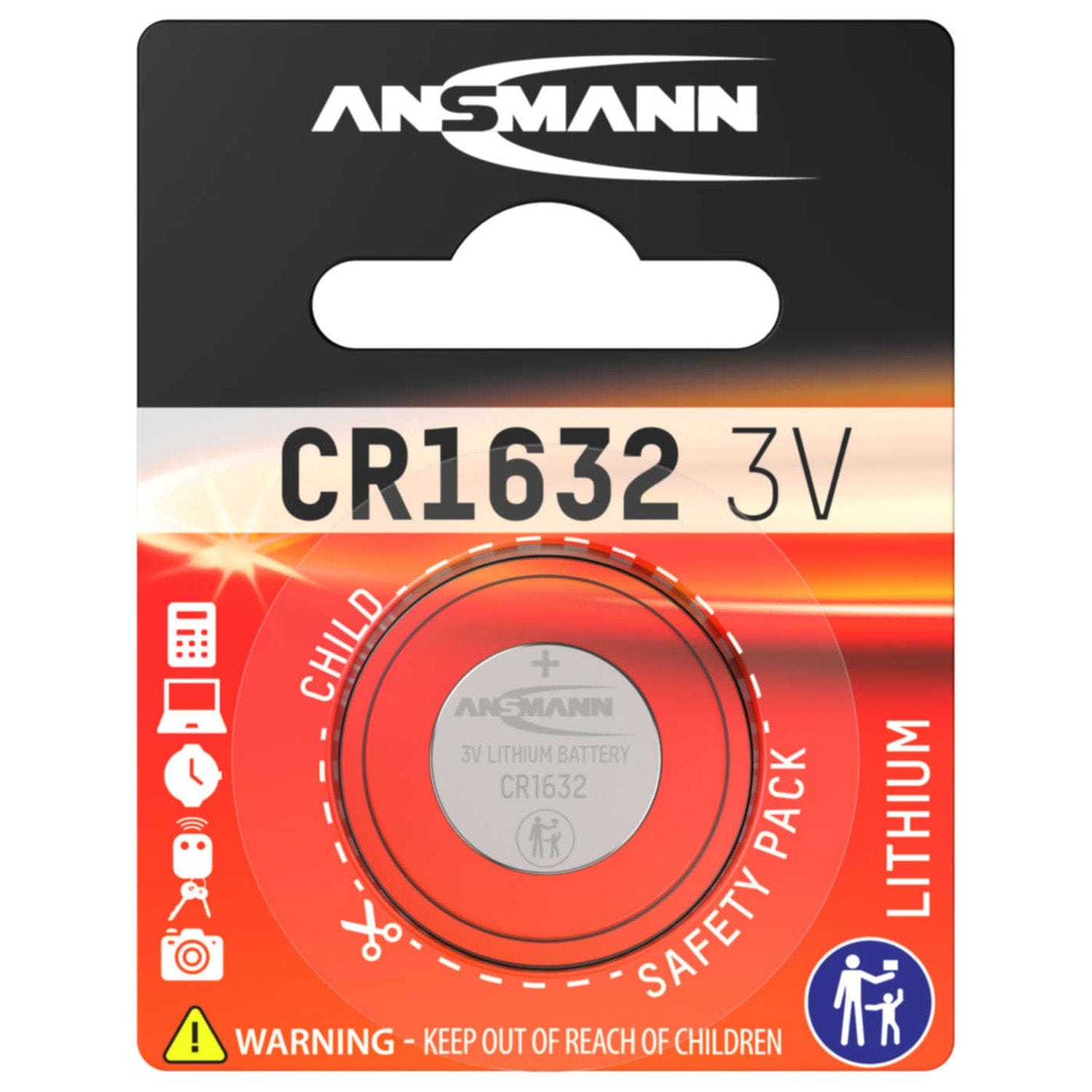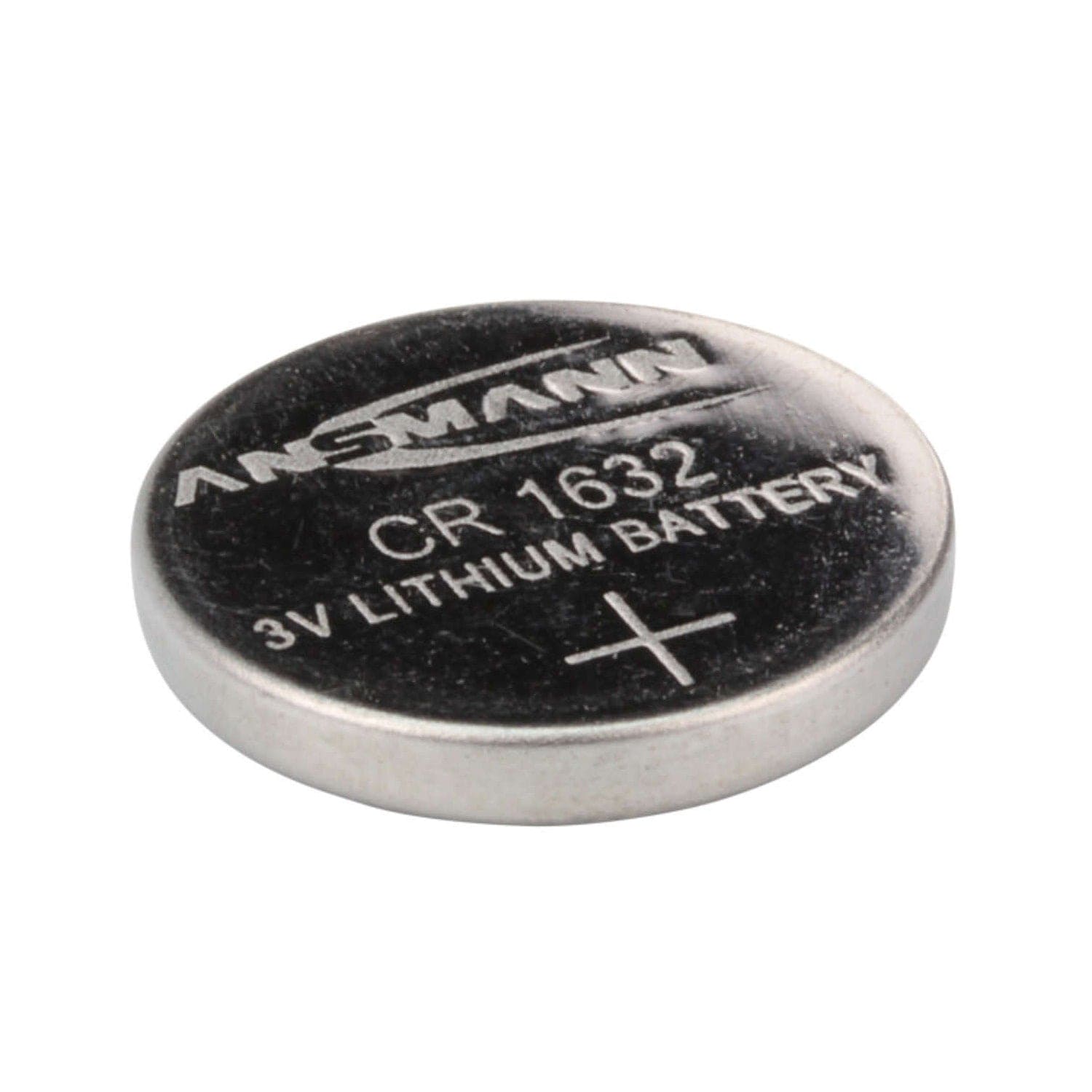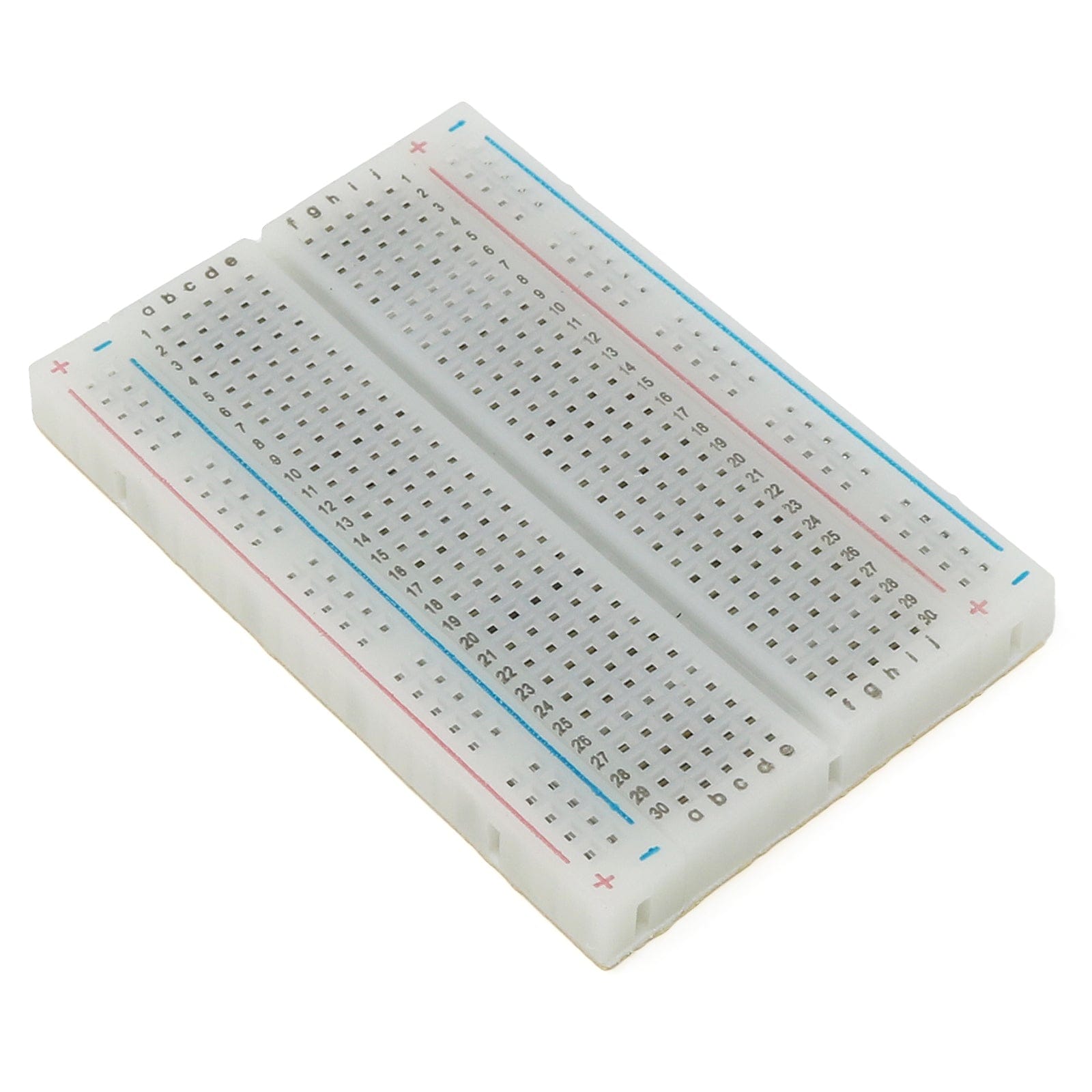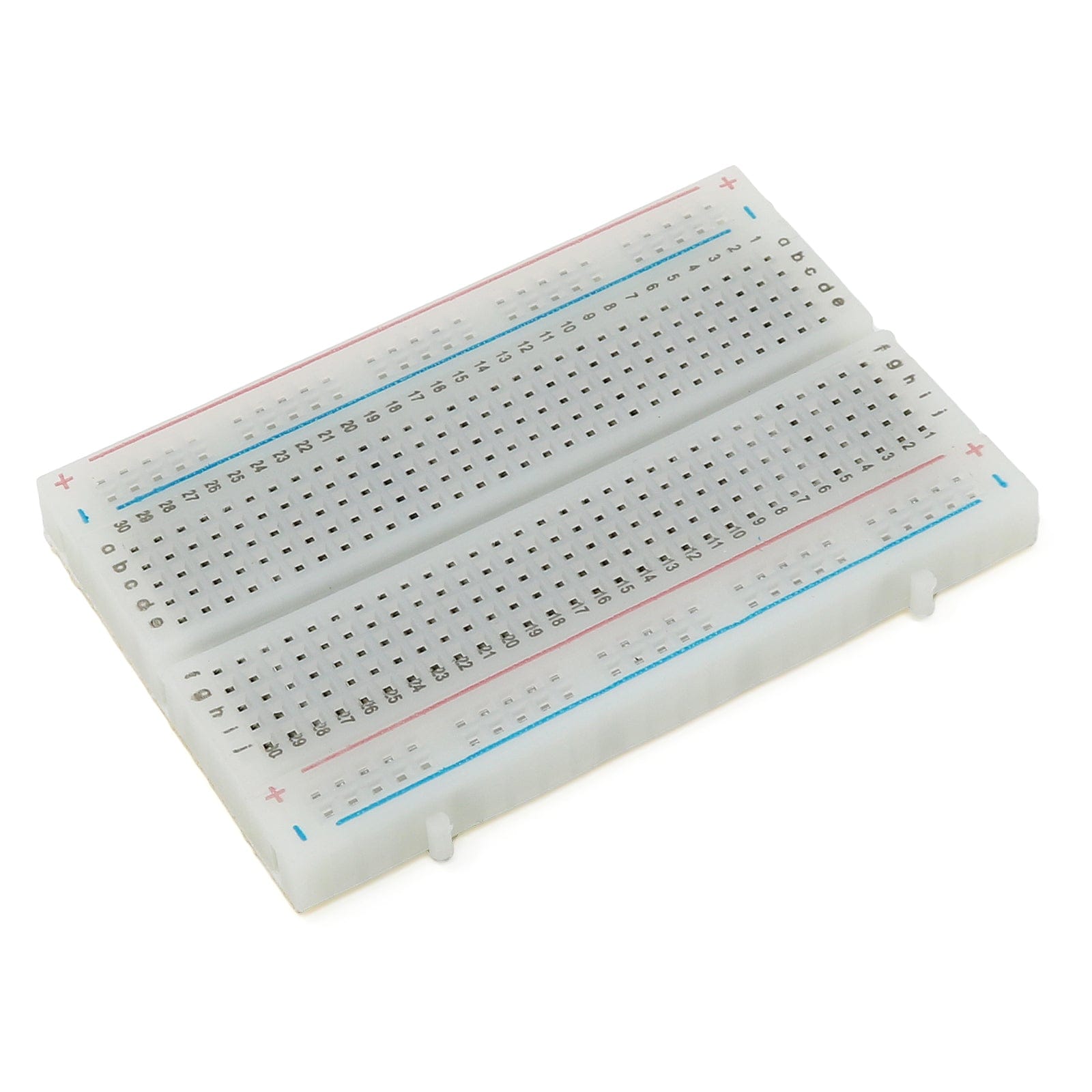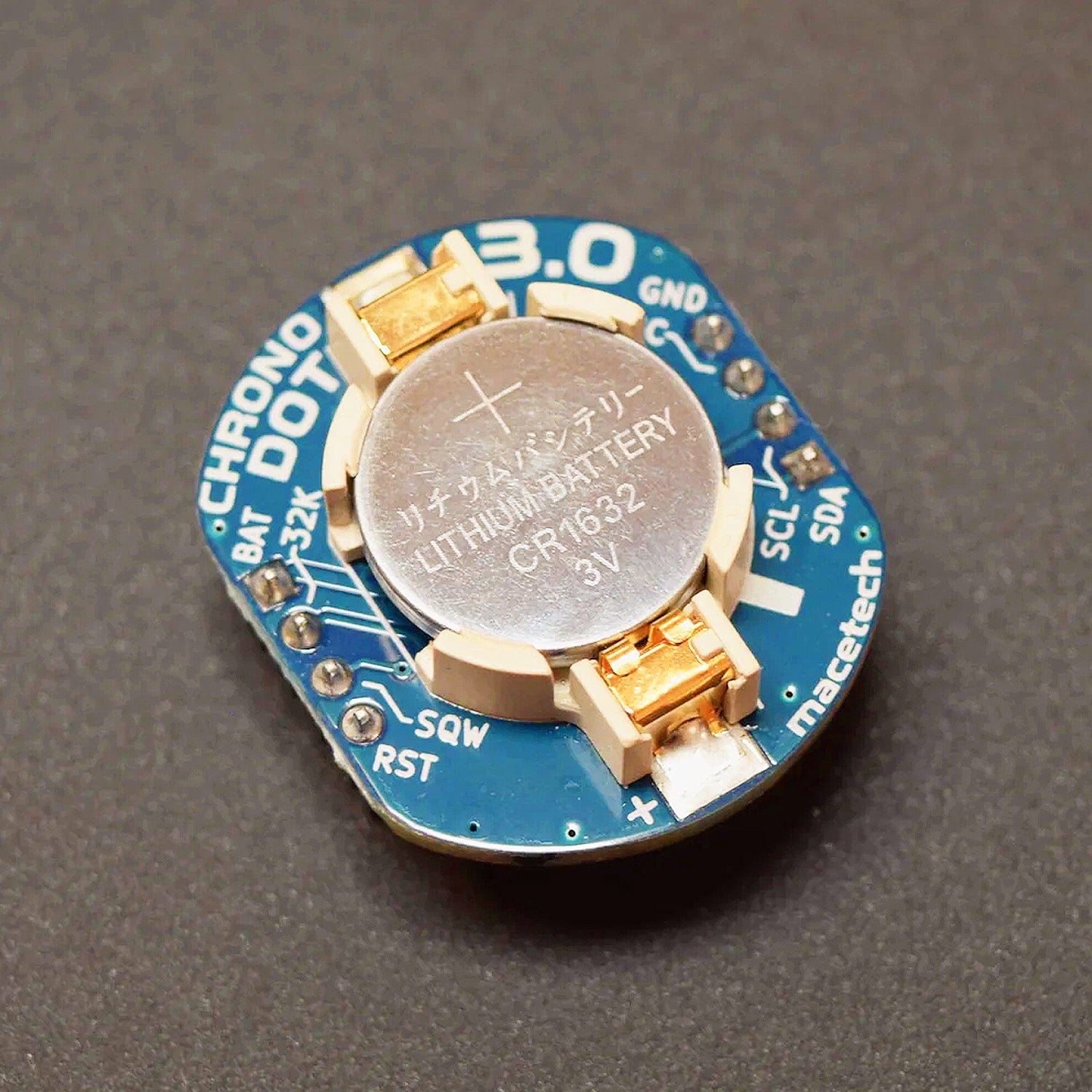
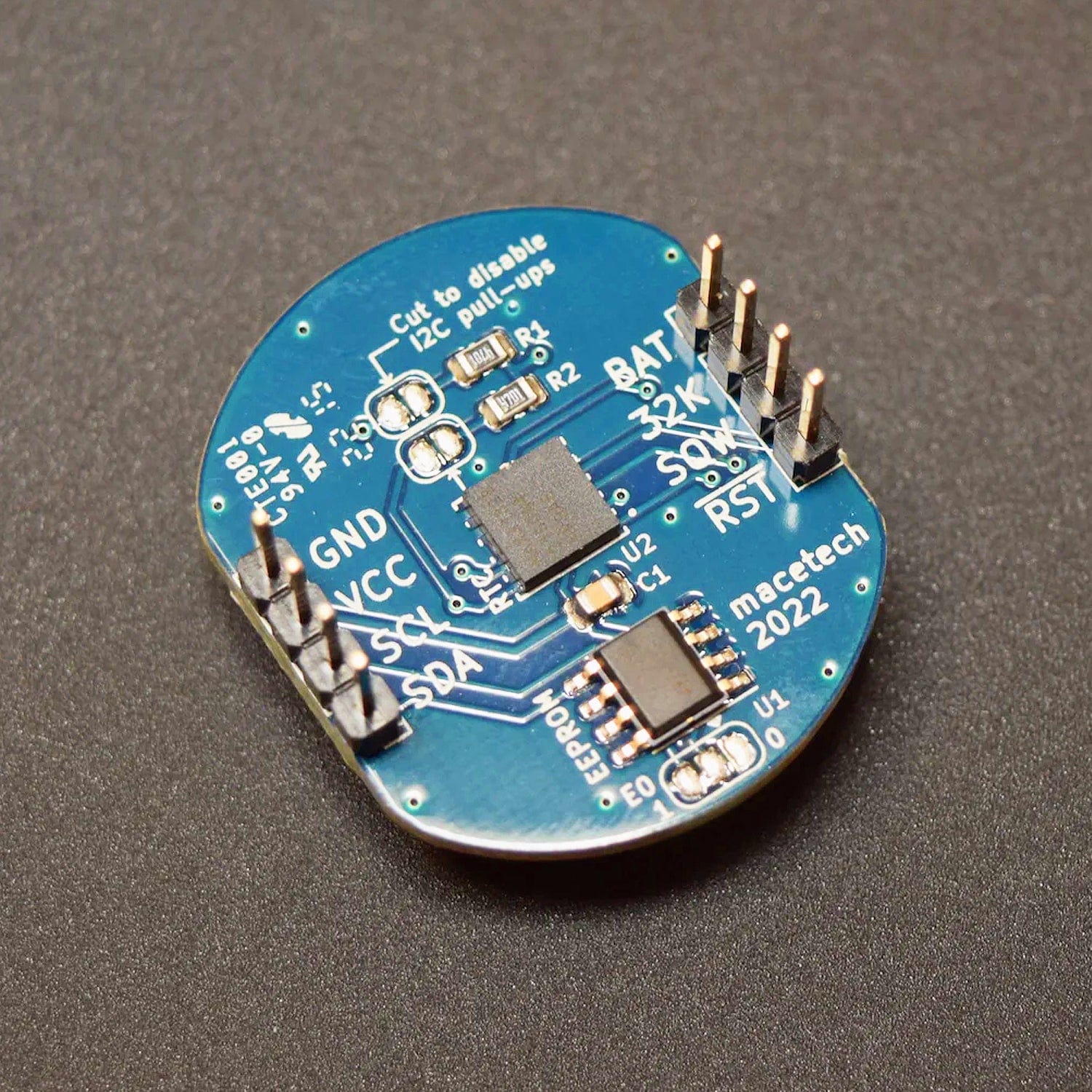
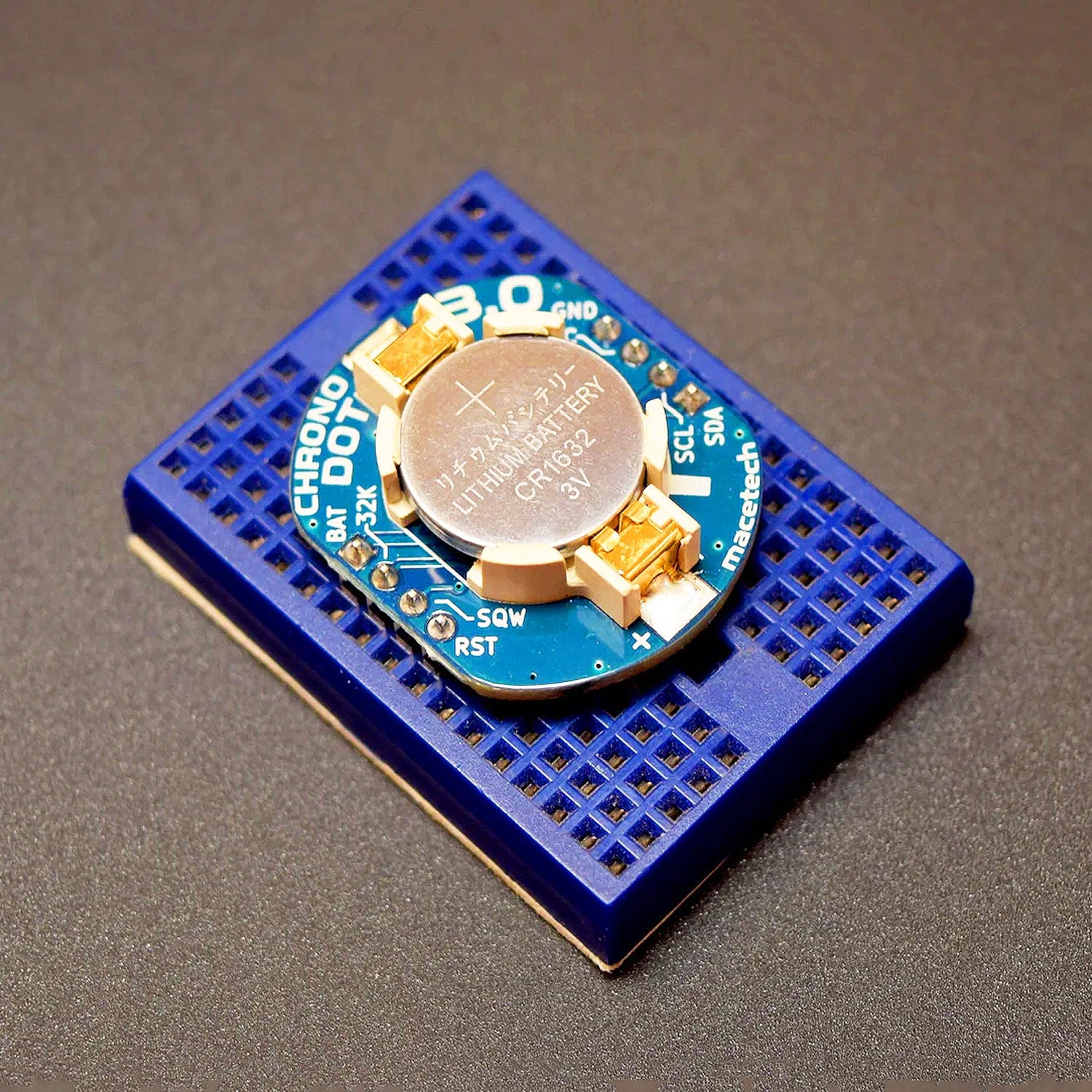
Login / Signup
Cart
Your cart is empty
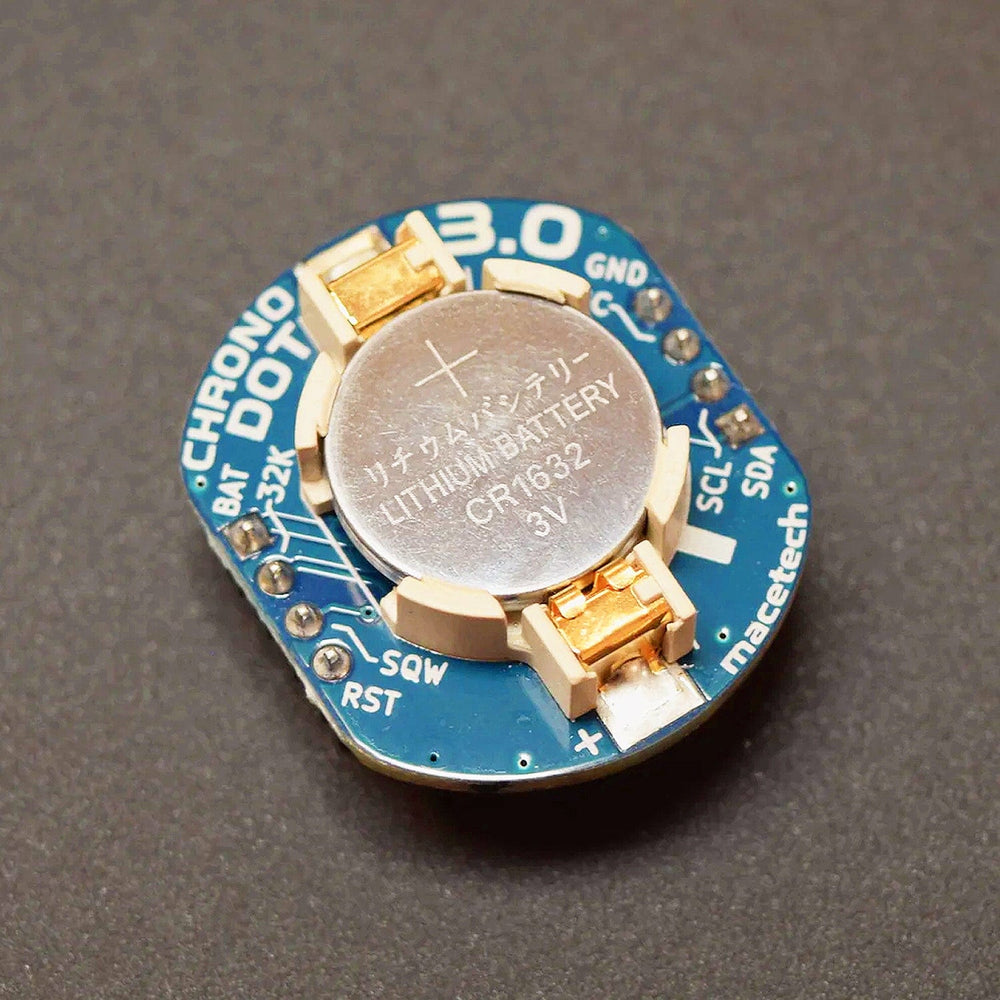
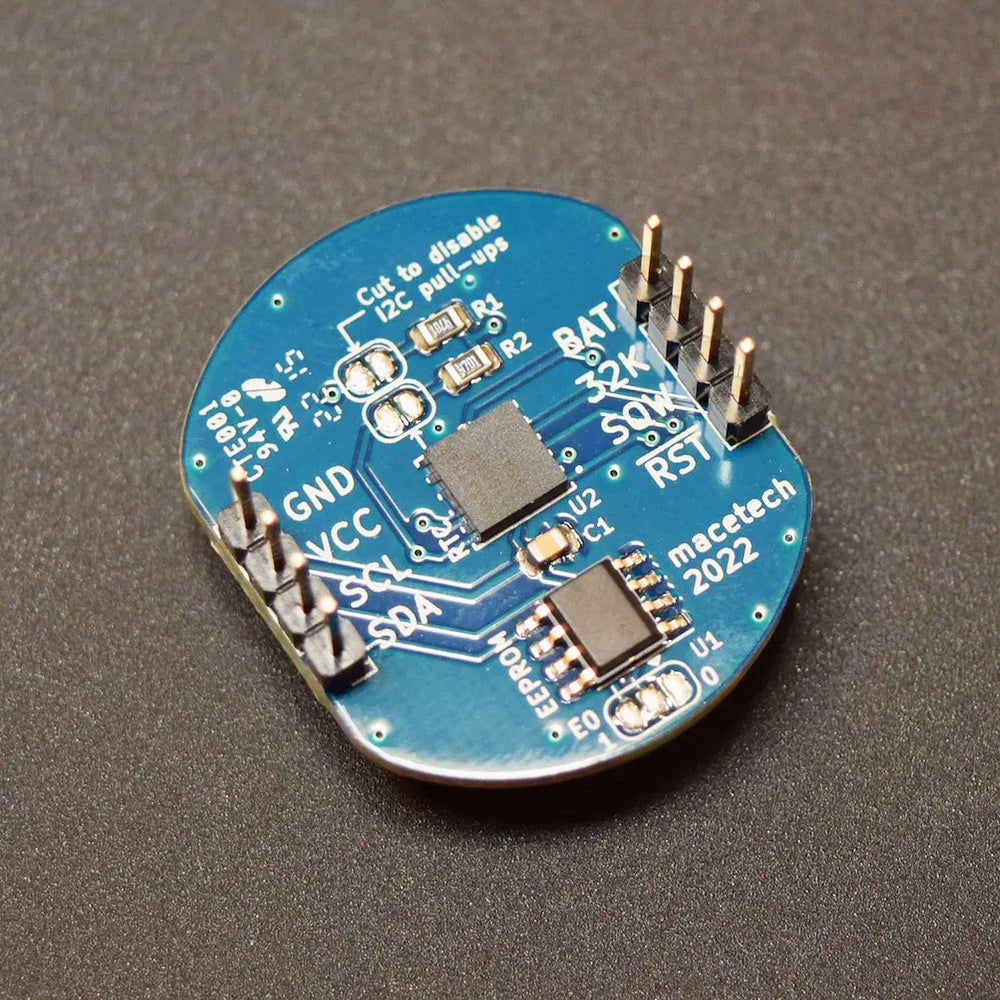
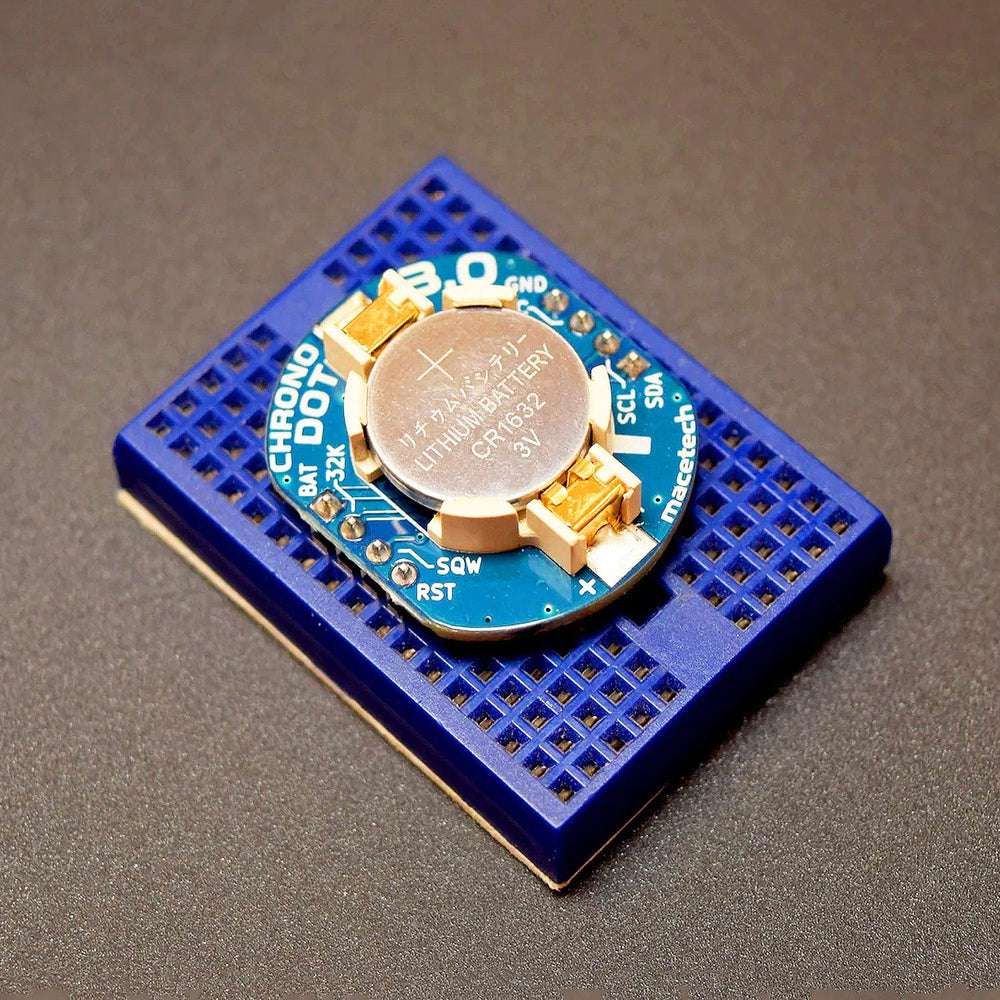
The ChronoDot RTC is an accurate real time clock module, based on the MAX31328 temperature compensated RTC (TCXO). It includes a CR1632 battery which should last at least 8 years if the I2C interface is only used while the device has 5V power available. No external crystal or tuning capacitors are required.
The MAX31328 has an internal crystal and a switched bank of tuning capacitors. The temperature of the crystal is continuously monitored, and the capacitors are adjusted to maintain a stable frequency. Other RTC solutions may drift minutes per month, especially in extreme temperature ranges. The ChronoDot will drift less than a minute per year. This makes the ChronoDot very well suited for time critical applications that cannot be regularly synchronized to an external clock. The ChronoDot can deliver ± 3.5ppm accuracy across the entire -40C to +85C temperature range, but can be significantly more accurate (1ppm) near room temperature (22C).
The ChronoDot will plug into a standard solderless breadboard and also has mounting holes for chassis installation.
The I2C interface is very straightforward and virtually identical to the register addresses of the popular DS1337 and DS1307 RTCs, which means that existing code for the Arduino, Basic Stamp, Raspberry Pi, and other controllers should work with no modification. The interface is exactly identical to the DS3231 chip used in previous ChronoDot versions, meaning DS3231-specific functions such as temperature reading will also work.
Note: The breadboard is NOT included.




